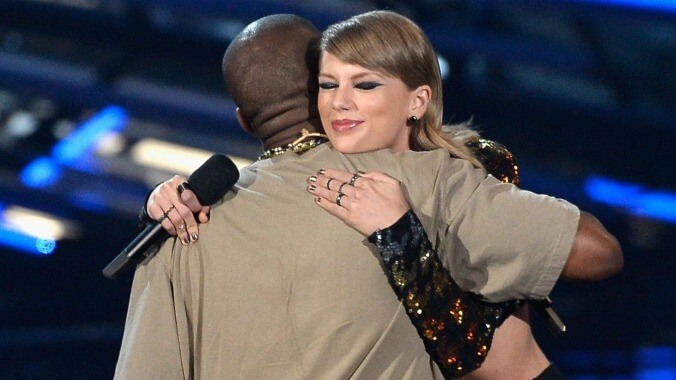Taylor Swift, Kanye West, and "Karma": Checking in on their 13-year feud
While Taylor Swift is singing about having karma on her side, Kanye is self destructing. Maybe it's time to finally put this thing to bed.

It’s been more than a decade since the bad blood began between Kanye West and Taylor Swift—13 years, to be precise, the holiest number in Swiftie lore—a feud that was borne of Kanye’s ill-conceived interruption at the 2009 Video Music Awards. While the pendulum of public opinion has swung back and forth over the years, the stars have remained inextricably entwined.
But after the latest round in this cosmic boxing match, it may be time for both artists to unlace their gloves and head to their respective corners for good. Their long-running feud has become so unbalanced that it’s no longer interesting—and in some ways it’s become downright disturbing.
Much of that stems from West’s recent, dramatic and self-inflicted fall from grace. His behavior reached its most alarming nadir just as Swift released another pop album to near-universal acclaim, smashing records. Midnights makes clear that Swift delights in succeeding while her enemy crashes and burns. But when that crash and burn is accompanied by a heavy helping of white supremacist rhetoric, it leaves a distinctly unpleasant taste.
“Imma let you finish”
To recap: Ye infamously interrupted Swift’s acceptance speech for “Best Female Video” at the 2009 MTV VMAs. “Imma let you finish,” he said, “but Beyoncé had one of the best videos of all time.” Queen Bey was just as stunned as everyone else. Ye and Swift had years of nemesis-ship before they tentatively mended fences in 2015.
Their brief friendship (punctuated by Swift introducing Ye’s Video Vanguard Award at that year’s VMAs, where he first announced his 2020 presidential campaign) fell apart after the release of “Famous,” the track on which Ye rapped “I feel like me and Taylor might still have sex/ I made that bitch famous” (accompanied by a video of Swift and other celebrities as lifeless, nude wax figures). Swift called him out at the Grammys; Ye’s then-wife Kim Kardashian called Swift out on Keeping Up With The Kardashians, and later released video footage of Swift seemingly approving the lyric on “National Snake Day.”
Swift’s response was to post that she “would very much like to be excluded from this narrative, one that I have never asked to be part of.” Yet she’s revisited that narrative time and again since, fleshing out a full genre of Kanye-related work, almost enough to rival the songs written she’s about supposed ex-paramours. The Reputation era, with its snakes and spite, was a direct response to the situation, but it didn’t end there. On Lover, she opened the album with the ironic proclamation that she forgot all about the person throwing shade her way. Spoiler: she did not.
Bowing out of “the narrative?”
In early 2020, a full video of the “Famous” phone call leaked that seemed to vindicate Swift’s side of the story, marking the pendulum shift back to her side. This was another natural opportunity to bow out of “the narrative,” yet nevertheless, she persisted. folklore was more circumspect in its references to the feud, but it was clear Swift did not forget that Kanye existed. In the lyric video for her song “peace,” she pointedly capitalized the line “Robbers to the east, clowns to the West.”
The same month folklore was released, Ye’s long-promised presidential campaign imploded as he publicly broke down explaining his anti-abortion stance in relation to his own daughter. As his personal life began to fall apart, evermore dropped, which saw an uncharacteristically zen Swift advise her past self “not to get lost in these petty things / Your nemeses / will defeat themselves before you get a chance to swing.” The next month, it was reported that a divorce between Kardashian and Ye was imminent.
 Keep scrolling for more great stories.
Keep scrolling for more great stories.
